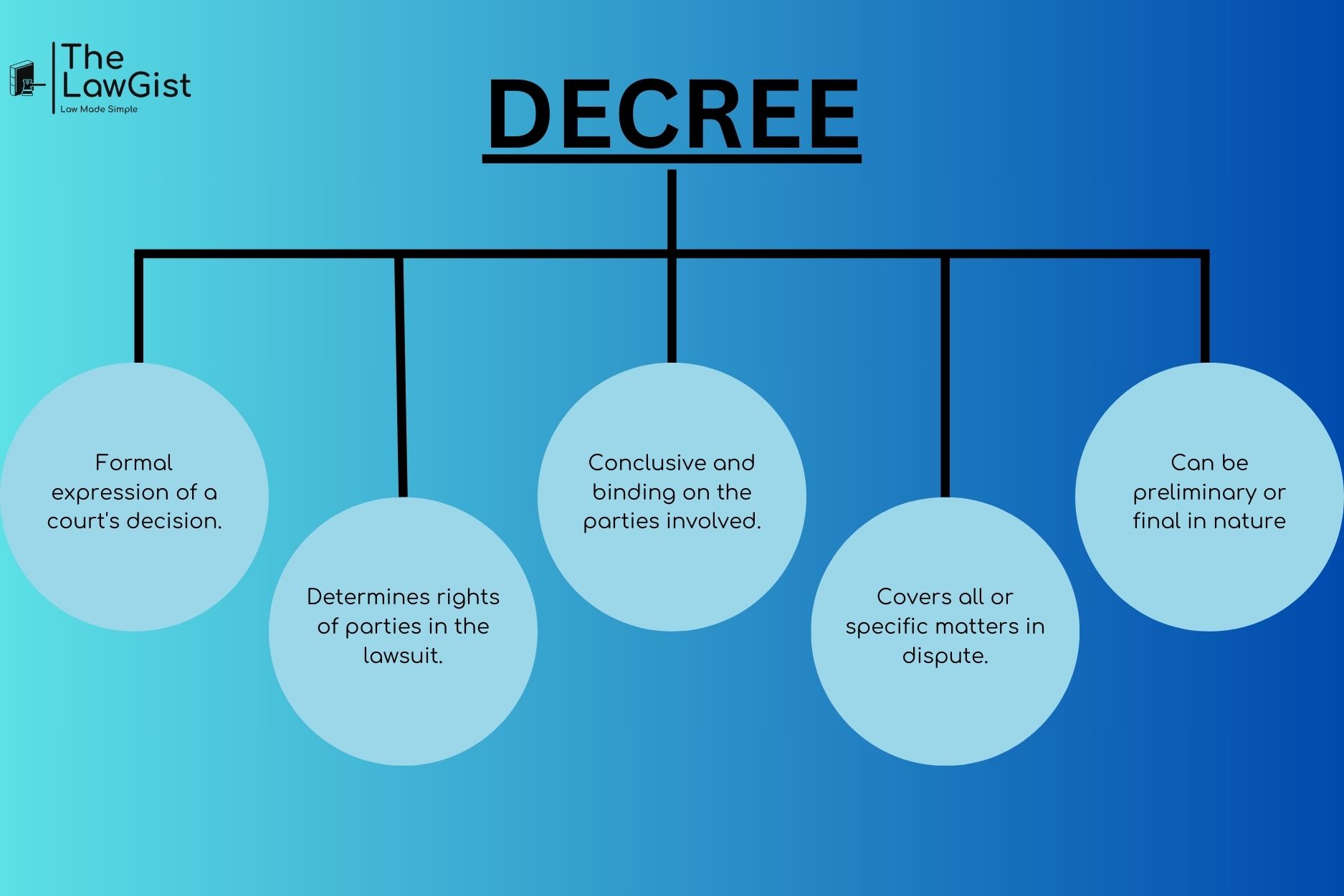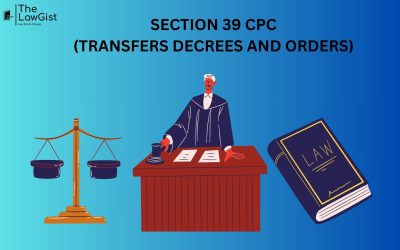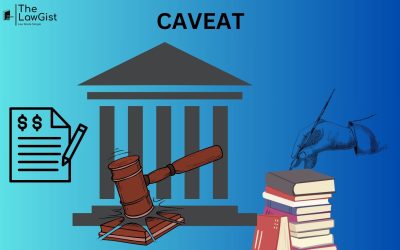
INTRODUCTION :
In civil litigation, the term “decree” holds significant importance. It represents the final determination of the rights and obligations of the parties involved in a lawsuit. Section 2(2) of the Civil Procedure Code defines decree and outlines its implications.
DEFINITION OF DECREE :
A decree, as per Section 2(2) of the Civil Procedure Code, means the formal expression of an adjudication that conclusively determines the rights and liabilities of the parties in a civil suit. It is a binding decision pronounced by the court after evaluating the facts, evidence, and legal arguments presented by both parties.
KEY ELEMENTS OF DECREE:
- Finality: A decree is a conclusive determination of the case, putting an end to the litigation between the parties involved. It settles the rights and obligations of the parties, leaving no further dispute on the matters covered in the decree.
- Binding Nature: A decree is binding on all the parties to the suit and their legal representatives. It must be complied with and enforced by the court, ensuring that the rights and liabilities mentioned in the decree are duly implemented.
- Appeal Mechanism: While a decree may seem final, it is subject to appeal. The parties dissatisfied with the decision can approach a higher court to challenge the decree’s legality or correctness. This allows for a fair and transparent judicial process, ensuring that any erroneous or unjust decisions can be reviewed and rectified.
- Executability: Once a decree is passed, it becomes enforceable. The court may issue necessary orders or directions to ensure compliance with the decree. Non-compliance with a decree can lead to contempt of court proceedings or other legal consequences.
CONCLUSION :
The decree mentioned under Section 2(2) of the Civil Procedure Code plays a vital role in civil litigation. It represents the final and binding decision of the court, settling the rights and liabilities of the parties involved. Understanding the nature and implications of a decree is crucial for anyone navigating the legal landscape.







